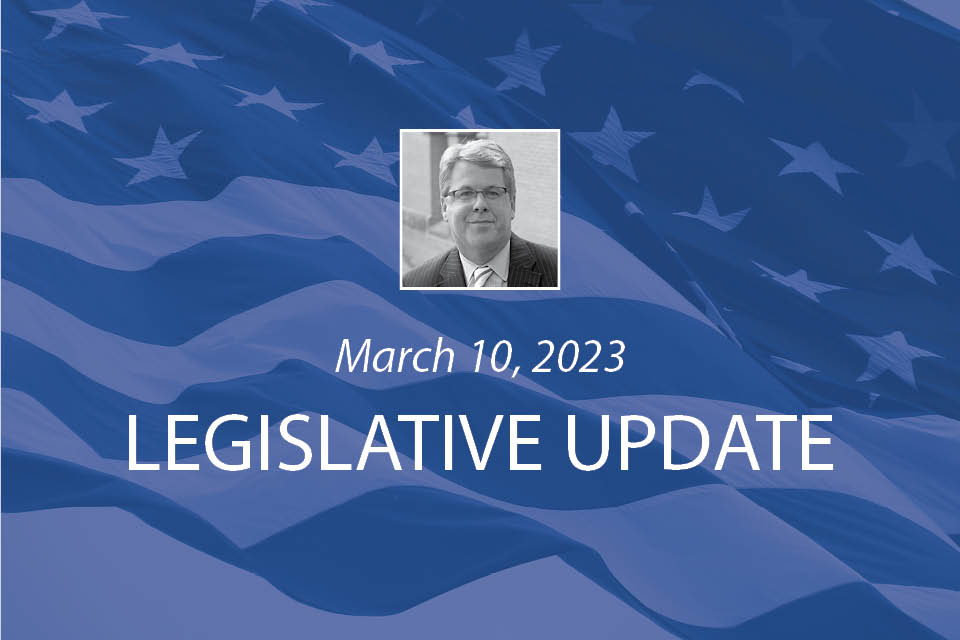Administration Budget
On Thursday, President Biden unveiled his proposed Fiscal Year 2024 budget, which, as expected, includes some revenue raisers for small and medium-sized Main Street businesses. Specifically, the proposal would expand the Net Investment Income Tax (NIIT) to include the active income of pass-through business owners. Recall that the original NIIT purposefully excluded the business income of active owners because it was seen as a tax on small businesses. The Administration is proposing to reverse course on this front by characterizing this exclusion as a “loophole.”
The proposal would increase the NIIT’s rate from 3.8 percent to 5 percent. That would raise the top rate paid on all S corporation income to 42 percent, or twice the current rate on large public companies structured as C Corporations. When tax rates are slated to increase in 2026, the top S corporation rate would rise to nearly 45 percent. The Joint Committee on Taxation scored the NIIT expansion as raising $252 billion dollars over ten years. Combined with the scheduled rate increase on S-Corporations in 2026, it is estimated that it would result in a tax increase on small businesses that will exceed $300 billion.
It is important to keep in mind that the President’s budget request to Congress is largely a messaging document to signal the Administration’s priorities. However, ABMA will be analyzing the proposal over the coming days and will be flagging additional issues that we need to follow and on which we need to engage.
SHIP IT Act
On Wednesday, a letter supporting the SHIP IT Act was sent to the Chairs and Ranking Members of the House and Senate Agriculture Committees, the House Transportation and Infrastructure Committee, as well as the Senate Commerce and Environment and Public Works Committees. The letter, which was signed by 53 national organizations (including ABMA) and 32 state and regional groups, urges swift enactment of the Safer Highways and Increased Performance for Interstate Trucking Act (SHIP IT) as an effective policy to address supply chain issues associated with a shortage of truckers. The letter points out that trucks carry over 60 percent of all freight that is moving in the U.S. and that this bill would be a triple win as it would deliver economic, supply chain efficiency, and environmental benefits. Tell your Representative to support and cosponsor the bill. It takes less than two minutes to send a message.
National Biobased Products Day
On March 8, the U.S. Department of Agriculture launched the inaugural National Biobased Products Day to underscore the accomplishments of people and organizations working to improve sustainability within the federal government. Moving forward, National Biobased Products Day will be an annual celebration to raise awareness of the benefits of biobased products, including wood-building products that “foster economic development.” The celebration will also spotlight achievements made through USDA’s BioPreferred® Program, a program that sets mandatory biobased product purchasing requirements for federal agencies and their contractors, as well as a voluntary labeling initiative for biobased products. Many companies in the forest products sector utilize this labeling program on their products to enhance awareness of the renewability and sustainability of wood-building materials.
The Biopreferred Program was authorized in the 2002 Farm Bill and later expanded in the last Farm Bill reauthorization in 2018. The program will be reauthorized later this year as part of the 2023 Farm Bill.
Northern Long-eared Bat (NLEB)
This week, the U.S. Fish & Wildlife Service released interim guidance to provide some direction to forest landowners and those looking to harvest timber on acceptable activities within the NLEB’s 37-state range. Recall that this bat species was recently uplisted from “threatened” to “endangered” pursuant to the Endangered Species Act. Uplisting typically results in more restrictions on activities that may be conducted within the uplisted species’ habitat. This is an upstream issue for ABMA, but wood-building product manufacturers have been closely following developments on this front. When the NLEB was originally proposed to be listed as endangered back in 2015, the USFWS proposed extreme harvesting restrictions in the bat’s range between the months of April and October. The industry effectively pointed out at that time that forest management was not the cause of the bat’s decline, but rather White Nose Syndrome which is devastating populations of not only the NLEB but several other bat species. Upon initial review of the interim guidance, the USFS appears to have taken a reasonable approach, but we will keep you apprised of developments and share other stakeholder analyses.




